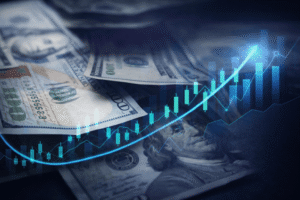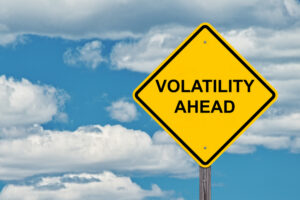Daily News Nuggets | September 8th, 2025 — Here’s what you need to know about today’s most important economic and precious metals news:
Gold Smashes Through $3,600 as Critical Fed Week Begins
Gold soared to an all-time high Monday, smashing through $3,600 as investors bet on lower interest rates ahead. Spot gold peaked at $3,636 per ounce, extending this year’s remarkable 38% rally.
What’s driving the surge? A perfect storm of factors: anticipation of Fed rate cuts, aggressive central bank buying, and persistent economic uncertainty. The milestone extends beyond U.S. markets — in Canada, gold topped CAD$5,000 per ounce, a striking achievement considering the Bank of Canada holds zero gold reserves.
Looking ahead, UBS analyst Giovanni Staunovo predicts gold could hit $3,700 by mid-2026, suggesting this bull run has room to run.
Jobs Data Bombshell Could Reshape Fed Plans
Brace for impact: Tuesday’s benchmark revision may reveal that the U.S. added up to 800,000 fewer jobs than previously reported through March. Some Wall Street economists warn the revision could approach one million positions.
Why it matters: This would confirm the labor market started weakening long before this summer’s dramatic cooldown. Friday’s dismal report showed just 22,000 jobs created in August — practically a rounding error in an economy of this size. The mounting evidence gives ammunition to those arguing the Fed waited too long to act and may need to cut rates more aggressively at their September 17 meeting.
Inflation Threatens to Complicate Rate Cut Narrative
Just when the Fed thought it had a clear path to cut rates, Thursday’s inflation report could muddy the waters. Economists expect consumer prices rose 0.3% monthly and 2.9% annually in August, both accelerating from July’s pace.
The Fed finds itself caught between two fires. The collapsing jobs market demands monetary support, but inflation remains stubbornly above target, partly fueled by ongoing tariff policies. As Wells Fargo economists warn, sticky services inflation continues to challenge the Fed’s 2% goal, leaving policymakers to navigate an increasingly narrow path.
Argentine Voters Deliver Stinging Rebuke to Milei
President Javier Milei’s economic shock therapy faced its first major electoral test Sunday — and failed. His party captured just 34% of votes in Buenos Aires provincial elections, losing by 13 points to the Peronist opposition.
The context is crucial: Argentina suffered from 200%+ annual inflation when Milei took office last December. While he’s wrestled monthly inflation down from 25.5% to below 3%, the medicine has been bitter. With poverty still above 38% and painful austerity measures in place, voters sent a clear message of impatience.
“We suffered a setback, and we must accept it responsibly,” Milei admitted. The defeat threatens his reform agenda heading into October’s congressional midterms, where his party desperately needs to expand its tiny legislative minority.
Nasdaq Bets Big on Blockchain Future
In a groundbreaking move, Nasdaq has asked regulators to approve trading of “tokenized” versions of stocks and ETFs alongside traditional securities. If approved, it would mark the first time a major U.S. exchange embraced blockchain-based assets.
The timing is no coincidence — the SEC recently signaled new openness to crypto trading on national exchanges. Nasdaq stressed these tokenized securities would operate within existing laws, not around them. The push reflects Wall Street’s growing belief that blockchain technology could revolutionize how markets operate, promising faster settlements and improved liquidity.






